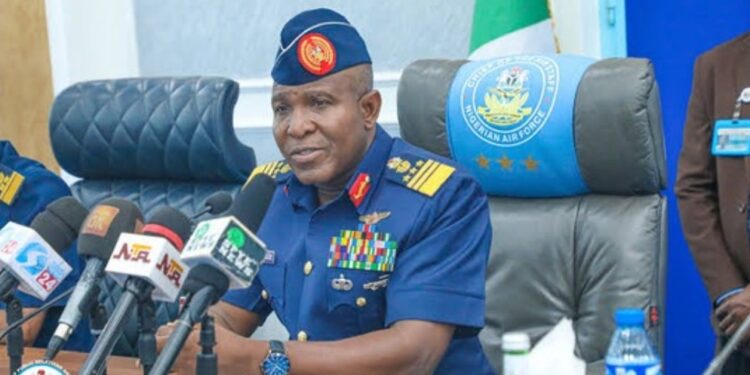The Nigerian Air Force (NAF) has urged the nation to adopt the Air Mobile First Aid training, a pioneering program
designed to equip nurses with rapid response capabilities in challenging environments.
This training has the potential to transform emergency healthcare delivery in Nigeria. Air Marshal Hasan Abubakar,
Chief of the Air Staff, emphasized the importance of scaling this program beyond the NAF College of Nursing Sciences (NAFCONS).
He described the initiative as a national asset that could become a cornerstone of the national nursing curriculum.
The Air Mobile First Aid training is designed to prepare nurses for aeromedical evacuation and austere conditions.
Abubakar praised the collaboration between NAFCONS and the Nigerian Air Force School of Medical Sciences and
Aviation Medicine, calling it a model for crisis response and emergency care.
NAFCONS has consistently set new benchmarks in nursing education, producing competent and compassionate
healthcare professionals. The college has a 100% success rate in national licensing exams and trains both military
and civilian students in a values-driven academic environment.
You may also like: Zamfara Tragedy: Air Force Investigates Accidental Bombing of Vigilantes
The Commandant of NAFCONS, Squadron Leader Boyi Elisha, thanked the Chief of the Air Staff and regulatory
agencies for their support. He reaffirmed the college’s commitment to producing world-class nurses for civilian and military service.
The NAF’s efforts to improve healthcare delivery align with its mission to ensure national security and defense. By
adopting the Air Mobile First Aid training nationwide, Nigeria can enhance its emergency healthcare services.
This initiative demonstrates the NAF’s commitment to innovation and excellence in medical training. By expanding
this program, Nigeria can improve its healthcare system and provide better services to its citizens.
The nationwide adoption of Air Mobile First Aid training could significantly impact Nigeria’s healthcare sector. It would enable nurses to respond quickly and effectively in emergency situations, ultimately saving lives.




































